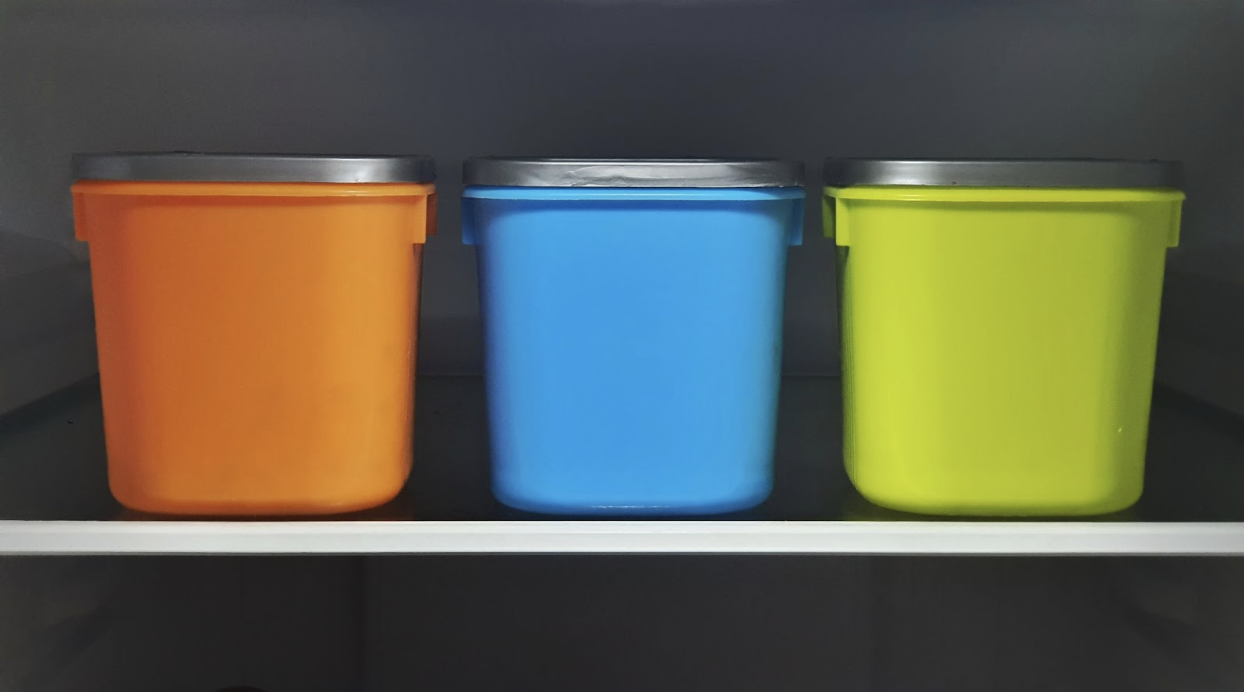Better Basement Storage Solutions
My clients are often short on space, so they turn to storing items in the basement. It can be a practical solution, but it’s important to remember that basement storage solutions require a little extra thought and care. Improper storage can lead to disastrous results, leaving irreplaceable belongings and valuable items destroyed.
Think about what you are storing in your basement, but also how you are storing it. Below I’ve shared some simple tips and tricks to help you keep your belongings in mint condition, while also making the most out of your basement as a useful storage space.
Plan To Use Plastic
My number one rule for basement storage: plan to use plastic! Because basements are not typically insulated very well, they are prone to high humidity, flooding, and other sources of water damage. The damp conditions created by the moisture in the air can lead to mold, mildew, and rust problems. This is often an issue in older homes, especially. Plastic is an impermeable material, so it will serve as a barrier against these unfavorable conditions.
Be sure to store any loose items in a plastic container with an airtight lid. This is especially important for fragile objects and belongings such as photos and documents. Sealing containers with an airtight lid will also help prevent moisture from seeping in and causing damage to your items.
Avoid the heartbreak of having to sort through dirty, soggy, chewed up belongings by steering clear of cardboard boxes and wood containers. Cardboard and wood are both porous materials, which means they will soak up water. They are not very effective in protecting items in storage because water can easily get inside them, causing irreparable damage. Critters can also chew through these materials and leave unpleasant surprises behind.
I always remind my clients that anyone can have a water accident. Even if the conditions seem fine when you initially store your items, you never know when you might experience a water leak or flooding.
If you absolutely must store wood furniture in a basement, make sure it is protected and raised off the floor with planks or cinder blocks.
Minimize Damp Conditions with a Dehumidifier
While you should absolutely use plastic to prevent moisture from getting inside your storage containers, it’s also a good idea to use a dehumidifier if you will be using your basement for storage. Dehumidifiers help to minimize the amount of moisture in the air and prevent the growth of mold, mildew, and rust.
Not a fan of hunting through dusty boxes in the basement? Dehumidifiers also clean the air, reducing the amount of dust and debris that settles on your items in storage. That’s better for your allergies, better for protecting your stuff, and better for keeping dust mites and other pests away.
Go Vertical
You should also utilize the vertical space for safe storage in your basement. This solution is often overlooked, but it can provide the best protection for your belongings and increase the amount of usable storage space. When you store items vertically, there is less chance that they will be damaged by flooding on the basement floor. And, this will prevent you from having to move multiple containers just to get to the one you actually need.
Here are some vertical storage suggestions:
Hang racks from the ceiling: Store larger items that don’t fit in standard size plastic containers and leave more room below for items you use most often
Use open shelving: Easily find and access your belongings; easier lifting from arm or shoulder height
Mount pegboards: Organize your tools or cleaning supplies while keeping them dry and off the floor
Mount rails and hooks: Perfect for items that need to be hung, such as clothing
I’d be happy to help you identify the best vertical storage solutions for your space and create an organization system for the shelving, too.
I will group similar items together and label containers so that everything has a place and you know just where to find it. Implementing a solid organization system will save you the time and hassle of having to dig through every box looking for that one item you need.
Vapor Barriers: To Use or Not To Use?
Vapor barriers can be another effective solution to protecting items stored in the basement, depending on the condition of your basement. A vapor barrier is just what it sounds like - a thick layer of plastic that serves as a barrier against moisture outside.
If your basement is unfinished, a vapor barrier is a great way to provide a little bit of extra insulation. This will not only keep water out, but it will also help to prevent damage to the foundation or structure of your home.
However, if your basement is finished, vapor barriers can actually do more harm than good. In finished basements, they will trap the moisture in the air inside and create especially humid conditions.
It’s a good idea to do some research or consult an organizing professional before installing a vapor barrier in your basement to prevent unintentional damage to your home and personal items.
Need some help organizing your basement? I’d love to share my knowledge and give you more tips to transform your basement into a safe haven for your belongings and most cherished memories. Contact me to schedule a session at your convenience!


